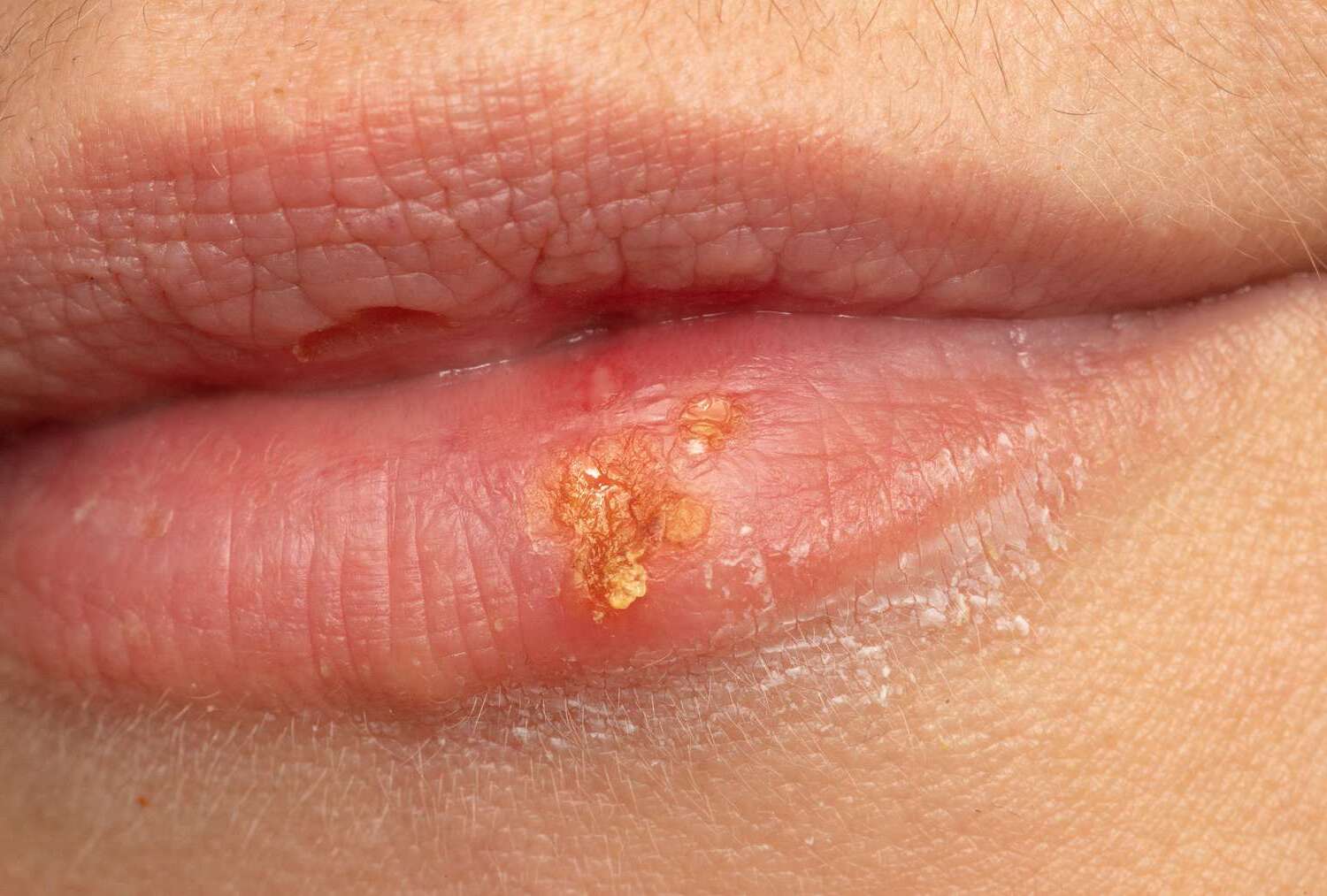
Cold sores are those pesky, painful blisters that seem to pop up at the worst times. Caused by the herpes simplex virus (HSV-1), they usually appear around the lips or mouth. Did you know that nearly 90% of adults worldwide have been exposed to this virus? While some people never show symptoms, others experience frequent outbreaks. Stress, sunlight, and even certain foods can trigger these unwelcome visitors. But don't worry, there are ways to manage and reduce their occurrence. From antiviral creams to natural remedies, understanding cold sores can help you keep them at bay. Ready to learn more? Let's dive into 50 fascinating facts about cold sores!
What Are Cold Sores?
Cold sores, also known as fever blisters, are small, painful blisters that usually appear on or around the lips. They are caused by the herpes simplex virus (HSV-1) and are highly contagious.
-
Cold sores are caused by the herpes simplex virus type 1 (HSV-1). This virus is different from HSV-2, which typically causes genital herpes.
-
Most people contract HSV-1 during childhood. The virus is often spread through non-sexual contact, such as kissing or sharing utensils.
-
Cold sores can be triggered by stress. Emotional or physical stress can weaken the immune system, making it easier for the virus to reactivate.
-
Sun exposure can trigger outbreaks. UV rays can damage the skin and trigger the virus to become active.
-
Cold sores are contagious even before they appear. The virus can be spread even when no blisters are visible, particularly during the tingling phase.
Symptoms and Stages
Cold sores go through several stages, from initial tingling to the final healing phase. Understanding these stages can help in managing and treating outbreaks effectively.
-
The first stage is tingling or itching. This usually occurs around the lips and is a sign that a cold sore is about to develop.
-
Blisters form in the second stage. These small, fluid-filled blisters are painful and can appear in clusters.
-
The third stage involves oozing and crusting. The blisters break open, releasing fluid, and then form a crust as they begin to heal.
-
Healing can take up to two weeks. The sores gradually scab over and heal without leaving scars.
-
Cold sores can cause fever and swollen lymph nodes. These symptoms are more common during the first outbreak.
Treatment and Prevention
While there's no cure for cold sores, various treatments can help manage symptoms and speed up healing. Preventive measures can also reduce the frequency of outbreaks.
-
Antiviral creams can reduce symptoms. Over-the-counter creams like acyclovir can help shorten the duration of an outbreak.
-
Oral antiviral medications are effective. Prescription drugs like valacyclovir can be taken at the first sign of an outbreak to reduce severity.
-
Cold compresses can relieve pain. Applying a cold, damp cloth to the sores can help reduce swelling and discomfort.
-
Avoiding triggers can prevent outbreaks. Identifying and avoiding personal triggers, such as stress or sun exposure, can help reduce the frequency of cold sores.
-
Lysine supplements may help. Some studies suggest that lysine, an amino acid, can reduce the frequency and severity of outbreaks.
Myths and Misconceptions
There are many myths surrounding cold sores, from their causes to their treatment. Clearing up these misconceptions can help in better managing the condition.
-
Cold sores are not caused by colds. Despite the name, cold sores are not caused by the common cold but by the herpes simplex virus.
-
Cold sores are not the same as canker sores. Canker sores occur inside the mouth and are not caused by the herpes virus.
-
You can't get rid of HSV-1. Once infected, the virus remains in your body for life, though it may remain dormant for long periods.
-
Cold sores are not a sign of poor hygiene. The virus is highly contagious and can be contracted even with good hygiene practices.
-
You can't catch cold sores from a toilet seat. The virus is spread through direct contact with infected skin or bodily fluids.
Impact on Daily Life
Cold sores can affect various aspects of daily life, from social interactions to self-esteem. Understanding their impact can help in finding ways to cope.
-
Cold sores can affect self-esteem. Visible sores can make people feel self-conscious and anxious about their appearance.
-
They can interfere with eating and drinking. Painful sores can make it difficult to consume certain foods and beverages.
-
Cold sores can disrupt sleep. Pain and discomfort can make it hard to get a good night's rest.
-
They can affect social interactions. Fear of spreading the virus can make people hesitant to engage in close contact with others.
-
Cold sores can impact romantic relationships. Concerns about transmission can create stress and anxiety in intimate relationships.
Cold Sores in Children
Children are often more susceptible to contracting HSV-1 due to their close contact with others. Managing cold sores in children requires special care.
-
Children can contract HSV-1 from family members. Close contact, such as kissing or sharing utensils, can spread the virus.
-
Cold sores in children can be more severe. First-time outbreaks can cause more intense symptoms, including fever and swollen lymph nodes.
-
Children may have difficulty expressing discomfort. Younger kids might not be able to articulate their symptoms, making it harder to diagnose.
-
Topical treatments are often used for children. Over-the-counter creams can help manage symptoms in young patients.
-
Preventive measures are crucial. Teaching children about hygiene and avoiding sharing personal items can help reduce the risk of spreading the virus.
Cold Sores and the Immune System
The immune system plays a significant role in controlling HSV-1. A strong immune system can help keep the virus dormant and reduce the frequency of outbreaks.
-
A weakened immune system can trigger outbreaks. Conditions like HIV/AIDS or treatments like chemotherapy can make it easier for the virus to reactivate.
-
Healthy lifestyle choices can boost immunity. Regular exercise, a balanced diet, and adequate sleep can help strengthen the immune system.
-
Stress management is essential. Techniques like meditation and deep breathing can help reduce stress, a common trigger for cold sores.
-
Certain medications can affect immunity. Immunosuppressive drugs can make individuals more susceptible to outbreaks.
-
Natural remedies can support immune health. Supplements like vitamin C and echinacea are believed to boost the immune system.
Cold Sores and Other Health Conditions
Cold sores can sometimes be linked to other health conditions. Understanding these connections can help in managing both the sores and the underlying issues.
-
Eczema can worsen cold sores. People with eczema are more likely to experience severe outbreaks.
-
Cold sores can complicate dental procedures. Dental work can sometimes trigger an outbreak due to stress and trauma to the mouth area.
-
Hormonal changes can trigger outbreaks. Women may experience more frequent cold sores during menstruation or pregnancy.
-
Cold sores can be more severe in people with diabetes. High blood sugar levels can weaken the immune system, making it harder to fight off the virus.
-
Cold sores can be a sign of other infections. In rare cases, frequent outbreaks can indicate an underlying health issue that needs medical attention.
Cold Sores and Lifestyle
Lifestyle choices can significantly impact the frequency and severity of cold sores. Making informed decisions can help manage and prevent outbreaks.
-
Smoking can trigger cold sores. The chemicals in cigarettes can weaken the immune system and irritate the skin.
-
Alcohol consumption can affect outbreaks. Excessive drinking can weaken the immune system and trigger the virus.
-
Diet plays a role in managing cold sores. Foods rich in lysine, such as dairy products, can help reduce outbreaks, while foods high in arginine, like nuts, can trigger them.
-
Hydration is important. Staying well-hydrated can help maintain healthy skin and support the immune system.
-
Regular exercise can reduce stress. Physical activity is a great way to manage stress, a common trigger for cold sores.
Cold Sores and Technology
Advancements in technology have led to new ways of managing and understanding cold sores. From apps to new treatments, technology is making a difference.
-
Telemedicine can help manage cold sores. Virtual consultations with healthcare providers can make it easier to get prescriptions and advice.
-
Apps can track outbreaks. Some apps allow users to log symptoms and triggers, helping them better understand and manage their condition.
-
Laser treatments are being explored. Some studies suggest that laser therapy can reduce the duration and severity of cold sores.
-
New antiviral drugs are in development. Researchers are continually working on new medications to treat and prevent cold sores more effectively.
-
Genetic research is providing insights. Understanding the genetic factors that influence HSV-1 can lead to better treatments and preventive measures.
Cold Sores: Key Takeaways
Cold sores are more than just a nuisance. Caused by the herpes simplex virus (HSV-1), they’re highly contagious and can spread through direct contact. Stress, sunlight, and a weakened immune system can trigger outbreaks. While there’s no cure, antiviral medications can help manage symptoms and reduce the frequency of flare-ups. Home remedies like applying ice or using over-the-counter creams can also provide relief.
Preventing cold sores involves avoiding close contact with infected individuals, not sharing personal items, and maintaining good hygiene. If you experience frequent outbreaks, consult a healthcare professional for advice on long-term management. Understanding these facts can help you better manage and prevent cold sores, ensuring they don’t interfere with your daily life. Stay informed, take precautions, and keep those pesky sores at bay.
Was this page helpful?
Our commitment to delivering trustworthy and engaging content is at the heart of what we do. Each fact on our site is contributed by real users like you, bringing a wealth of diverse insights and information. To ensure the highest standards of accuracy and reliability, our dedicated editors meticulously review each submission. This process guarantees that the facts we share are not only fascinating but also credible. Trust in our commitment to quality and authenticity as you explore and learn with us.


